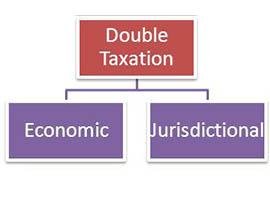Business Taxation

Mauritius offers a relatively low tax jurisdiction with an investor-friendly environment to encourage both local and foreign companies to set up a business in Mauritius.
Local companies in Mauritius enjoy a low corporate tax rate of 15%, and companies in the global business (formerly offshore) sector are also taxed at a corporate rate of 15% on business profits. However foreign tax credits are allowed to the full extent of the Mauritius tax for taxes paid at source. There is also a system of foreign tax credits of 80% that effectively reduces the income tax rate to 3% on the qualifying income of the company.
 Various
type of income are exempt from income tax, including:
Various
type of income are exempt from income tax, including:
• Income
derived by a Freeport company.
• Income derived by the registered
owner of a foreign vessel.
• Income derived by the registered owner
of a local vessel registered in Mauritius (provided the income is
derived from deep sea international trade only).
• Capital gains on
speculative or investment gains.
• A resident societe.
•
Dividends received and paid by a tax incentive company.
• Interests
payable on accounts held by qualified corporate (offshore).
•
Interest payable on specific government securities.
• Royalties
payable to a non-resident by a qualified company trust or
bank.
 In general, the
taxable income of a branch of a foreign company is computed in the
same way as that of a resident company. However, a branch may not
claim a deduction for interest and royalties paid to its foreign
head office. Payments of interest and royalties by a Mauritian
subsidiary to its foreign parent, on the other hand, are deductible,
although the payments will constitute Mauritian source income
subject to Mauritian income tax in the hands of the
parent.
In general, the
taxable income of a branch of a foreign company is computed in the
same way as that of a resident company. However, a branch may not
claim a deduction for interest and royalties paid to its foreign
head office. Payments of interest and royalties by a Mauritian
subsidiary to its foreign parent, on the other hand, are deductible,
although the payments will constitute Mauritian source income
subject to Mauritian income tax in the hands of the
parent.
 Where a company
carries on life assurance business in conjunction with any other
insurance business, the life assurance business is treated as a
separate business for income tax purposes.
Where a company
carries on life assurance business in conjunction with any other
insurance business, the life assurance business is treated as a
separate business for income tax purposes.
 All
Mauritian double taxation avoidance treaties are based on the OECD
Model Treaty of 1977. Under the post-independence treaties concluded
so far, tax sparing is available. This implies that where Mauritian
source dividends are exempt from tax under the tax incentive
provisions, the foreign investor is entitled to credit a notional
amount of Mauritian tax against the tax payable (if any) in his
country, thus reducing his domestic tax liability.
All
Mauritian double taxation avoidance treaties are based on the OECD
Model Treaty of 1977. Under the post-independence treaties concluded
so far, tax sparing is available. This implies that where Mauritian
source dividends are exempt from tax under the tax incentive
provisions, the foreign investor is entitled to credit a notional
amount of Mauritian tax against the tax payable (if any) in his
country, thus reducing his domestic tax liability.
 A Tax Residence
Certificate (TRC) is issued by the Income Tax Department in respect
of a company holding a Global Business Category 1 Licence (GBC1). It
allows such a company to claim Double Taxation Relief under the
various treaties signed by Mauritius.
A Tax Residence
Certificate (TRC) is issued by the Income Tax Department in respect
of a company holding a Global Business Category 1 Licence (GBC1). It
allows such a company to claim Double Taxation Relief under the
various treaties signed by Mauritius.






